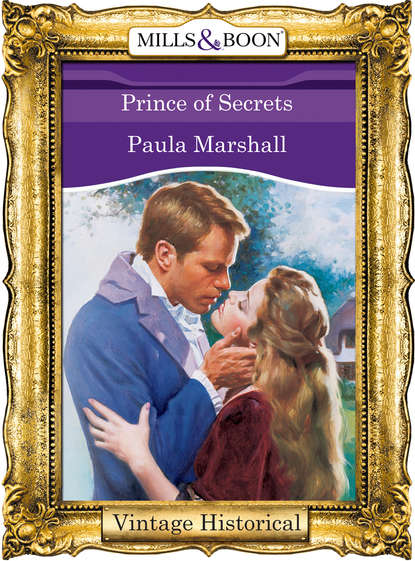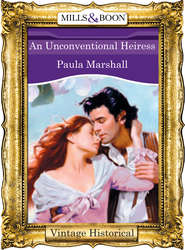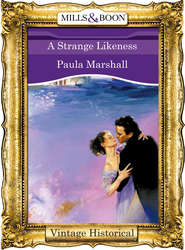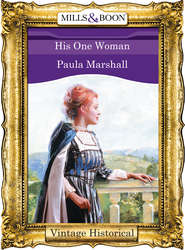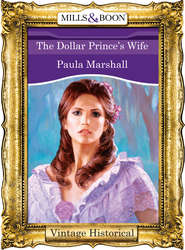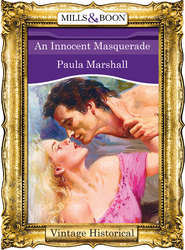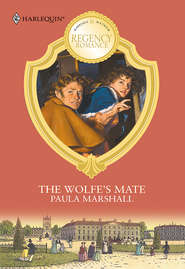По всем вопросам обращайтесь на: info@litportal.ru
(©) 2003-2024.
✖
Prince Of Secrets
Настройки чтения
Размер шрифта
Высота строк
Поля
‘Violet did me the honour of putting me in the know, as she called it. She and Kenilworth come to Sandringham at least twice each autumn and winter for the shooting. We are a little early for that, so we must find other means of entertainment. The Prince, as you know, occasionally takes his with Violet. At the court of eighteenth-century France she would probably have been known as “la maitresse en titre”.’
Dinah smiled. ‘I suppose that translates as the King’s Prime Mistress, rather along the lines of a female Prime Minister. Do you really wish to live this idle life, Cobie?’
Her question was a serious one this time, and he answered her equally seriously. ‘Not really as a permanent thing, but, for the moment, it is a new experience. I have other major interests, and in time you will share them with me. But, for the moment, we are engaged in experiencing high society and Royal favour. Oh, and by the by, I ought to warn you that the Prince’s dinner-party usually consists of twelve courses, so don’t eat too much of the earlier ones.’
‘Violet being your informant again, I suppose. I must say, she does have her uses.’
‘True, and the dining table is arranged strictly according to precedence so I am hoping that you and I don’t end up having to eat our meal in the kitchen, seeing that we are an American peasant and his wife.’
He said this gravely, but, as usual, she took his comic meaning.
Later he came into her room where Hortense and Pearson had just finished dressing her. He was already immaculately turned out—a tribute to Giles’s art. He had difficulty in not laughing out aloud when he saw her evening gown. It was a dream of a thing in white, cut with artful simplicity to improve her figure and decorated only—in a saucy reference to her nickname as The English Snowdrop—with tiny silk flowers. The largest bunch of them was on the green sash which circled her narrow waist.
She had ordered it in secret and Cobie had not seen it until he had walked in a few minutes ago. Her reward was to be favoured with one of his wicked grins, rarely offered to anyone.
‘If you are trying to make Violet jealous, you could hardly have done better,’ was his comment. This, plus a careful kiss on the cheek, designed not to disturb her fashionable splendour, was sufficient reward for her. After that, once she had entered the drawing room, the admiration on the faces of the men, and the annoyance on the women’s, were merely icing on her cake. To have pleased and surprised her unflappable husband was, she considered, an achievement in itself!
They sat apart at dinner, but he could see her down the table smiling and talking to her companions, and thought what a long way she had come in such a short time. She was obviously enjoying herself, and had taken his hint about not eating too much to begin with.
He watched her again, when she left with the ladies, and then his attention was drawn by the Prince, who, having lighted his cigar, was demanding that when they returned to the ladies, Cobie would play for them on his guitar.
‘You have brought it with you, eh, Grant?’
It was remarkable how charming this fat and middle-aged man could be when he chose. He was neither clever, nor learned, but he understood men and women. He knew what motivated them, he liked the things they liked, and his popularity stemmed from that. The crowds who gathered round his carriage shouting ‘Good old Teddy’ did so because they could see that he shared a common humanity with them. Cobie felt himself responding to it.
‘Sir, you commanded, and I had but to obey.’
The Prince’s glance at him was sharp and shrewd. ‘I should make you one of my courtiers, Grant. You are so much the master of the done thing.’
Cobie smiled, ‘My pleasure, sir.’
He could see his unacknowledged uncle, Sir Alan Dilhorne, smiling at him, and Van Deusen, well fed and rubicund, was winking at him over his cigar.
‘Don’t smoke, do you, Grant? These cigars are excellent. You should try one.’
‘Smoking spoils the voice, sir. I wish to do you—and myself—justice, later, so you will excuse me, I hope.’
Later turned out to be some time later. By the time they joined the women, who were sitting like so many swans, their arms so long and lovely, their heads so proud, many of the men had already over-indulged, Sir Ratcliffe among them.
Cobie called to him the hovering footman who was holding his guitar and retrieved it. The Prince was standing, so everyone else stood. He waved a hand, said, ‘Sit, sit,’ and then sat himself, so that everyone else could.
‘Mr Grant is to entertain us,’ he announced. ‘A Royal Command Performance, you understand. No gossiping.’
Violet made a moue, and Sir Ratcliffe looked displeased as the damned mountebank opened the case in which his guitar was kept and began to tune it.
‘Do you have any particular piece in mind, sir?’ Cobie asked, playing a series of quiet chords.
The Prince shook his head. ‘Nothing dismal, that’s all. I’m in no mind to be bored.’
‘Mmm.’
He thought a moment, then began to play, gently at first as his total recall brought back both words and music, the Lord High Executioner’s song from The Mikado.
I’ve got a little list, I’ve got a little list
Of society offenders who might well be underground,
And who never would be missed—who never would be missed!
The bored expressions on everyone’s faces vanished as his pleasant baritone wound its way to the end of the song. He finished with a flourish, bowing his head over his guitar. The Prince immediately began to applaud his virtuosity.
‘Oh, bravo, Grant, bravo. Better than all that stuff I have to endure with a straight face at the opera. Where did you learn to play and sing like that?’
Cobie bowed, amused that his talent with the guitar, although quite differently expressed, was entertaining the massed ranks of the British aristocracy and gentry as it had amused the outlaws at San Miguel so long ago.
‘At the Yale Glee Club, sir.’
‘It is to be congratulated—as are you. More, please.’
Cobie decided to offer something different.
He said, ‘This has to be done standing up,’ and began to play a Mexican love song, ‘La Paloma’, his guitar high on his shoulder. It was full of wild riffs, and he sang it first in Spanish, rolling the vowels liquidly on his tongue, and then in English.
The applause which followed was genuine. The Prince led it, then spoke to his wife, before turning to Cobie to say, ‘The Princess asks if you have a love song you would care to sing.’
He considered and, moved by something—perhaps it was Susanna’s face, sad in repose, reproaching him for having deserted her—said, ‘Yes, I think you would like this.’
So saying he sat down again and began to sing ‘Plaisir d’amour’, one of the most haunting and sad of ballads telling of love’s pleasures being short, but its pains, alas, being long and lasting a lifetime. His voice had changed again to match the music, and he sang it with all the feeling he could muster. It was almost as though he could feel Susanna’s pain, as though she had laid it on his back as a burden to be carried.
Perhaps, also, he thought, he was trying to tell Dinah something. He looked up once, to see her face, rapt, her eyes only for him. Slowly, slowly, as the song reached its sad end, he was suddenly in another room, far away in space and time, a room which knew nothing of kings and princes and nobility. In that room he had thought that in playing yet another elegiac tune he had finally said farewell to Susanna, but he might have known that their star-crossed love was not so easily renounced, and that Susanna’s pain still being with her, he was to be compelled to share it, even to the end.
The last notes died on the air. There was silence for a brief moment, before the Princess said, ‘Thank you, Mr Grant, that was beautiful,’ and began to clap, the rest of the audience following suit.
‘And that,’ said the Prince, ‘must be that. We thank the singer for his song,’
Only, a little later, he came up to Cobie, winked and smiled, murmuring, ‘When we go to the smoking room, shortly, bring your guitar with you. I have a bet that you have other songs to sing, even more entertaining.’
Which was a royal command. Sir Ratcliffe came up, flushed with drink, Susanna by him, and a few of his boon companions at his elbow.
‘Eh, well, Grant,’ he said, winking at his friends, ‘if all else fails, and the Stock Market falls through the floor, you can always earn a living on the pier at Brighton, what!’
‘I can think of worse ways of earning one,’ said Cobie coolly, refusing to return the insult, although Susanna’s mocking smile of pleasure at it cut him to the heart. He thought that drink was making Sir Ratcliffe unwary, besides ruining his complexion.
Susanna stayed behind for a moment, to whisper reproachfully, “‘Plaisir d’amour” was a most suitable song for you to sing, Cobie—except for one thing. You are highly qualified to speak of the shortness of love’s pleasure. The pains, however, you hardly seem to be acquainted with. You should leave singing of them to others.’
Cobie had a brief flash of total recall. He saw a lovely face, the face of a girl long dead, half-Yankee, half-Mexican, and thought that the pains of that lost love might be with him always. He said, quickly and urgently, ‘Susanna, I would like to speak to you about a serious matter.’
She looked at him, her face stone. ‘If it is about Sir Ratcliffe and me, you may spare yourself. Once and for all, we have done with one another. Let that be it. I want no sermons from the cheat and womaniser which you have become.’





